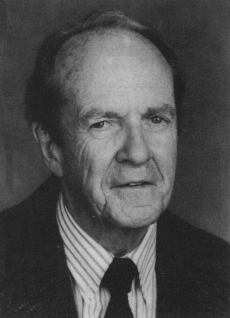Paul Lloyd Murphy (1923–1997), a prominent scholar and historian, was a strong advocate of First Amendment freedoms and a leader in the fields of civil liberties and the Bill of Rights. Often credited with inventing the field of American constitutional history, he wrote or edited many works dealing with the First Amendment, including The Meaning of Freedom of Speech: First Amendment Freedoms from Wilson to FDR (1972) and The Shaping of the First Amendment: 1791 to the Present (1991).
Murphy was known for his study of First Amendment freedoms during World War I
Born in Caldwell, Idaho, Murphy earned a Ph.D. from the University of California at Berkeley in 1953. In 1957, after other university teaching positions, he joined the faculty at the University of Minnesota, where he was a history professor for four decades.
A prolific writer, he was especially known for his study of the emergence of cases involving First Amendment freedoms during World War I and the threat the war had posed to such liberties. In World War I and the Origin of Civil Liberties in the United States (1979), Murphy observed, “A deliberately planned program of federal suppression was underway and was about to be expanded, in the form of opinion molding, Americanization, homogenization, the coercing of patriotic support, and the rooting out of disloyalty.”
Murray retired in June 1997 and died unexpectedly scarcely a month later. The American Society for Legal History established the Paul L. Murphy Award to assist the research and publication of new scholars working in the areas of U.S. constitutional history or the history of American civil rights and civil liberties.
This article was originally published in 2009. Ronald Steiner (Ph.D. Political Science, University of Minnesota; J.D., University of Southern California) is Professor and Director of Graduate Legal Education at the Fowler School of Law at Chapman University, where he teaches constitutional law and other topics in law and political science.

